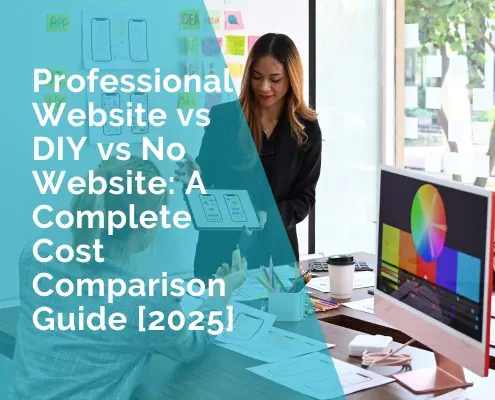AI Consulting: The Key to Unlocking Healthcare Innovation for Small Businesses
Artificial intelligence (AI) is transforming the healthcare industry in remarkable ways. While large hospitals and healthcare systems often have the resources to adopt advanced technologies, small and independent practices frequently need to catch up. However, AI has the potential to level the playing field and help small healthcare businesses thrive.
AI can analyze massive amounts of data to extract insights for improved clinical decision-making, operational efficiency, and patient engagement. It can automate tedious administrative tasks, freeing up staff to focus on patient care. AI also enables more personalized medicine by understanding each patient’s unique needs.
Smaller practices stand to benefit tremendously from AI adoption. Unfortunately, many lack the expertise to implement these advanced systems successfully, this is where AI consulting services for healthcare come in. Consultants can provide the knowledge and guidance needed to successfully integrate AI solutions tailored to the unique needs of small healthcare businesses.
Small practices can unlock AI’s full potential with the right strategy and support. Expert consultants enable healthcare providers to improve patient outcomes and experiences while remaining competitive and financially successful. AI consulting services empower small businesses to transform healthcare delivery for the better.
Current Use of AI in Healthcare
Artificial intelligence is already widely used in healthcare for applications like medical diagnostics, personalized medicine, and operational analytics. AI has shown great promise in improving healthcare outcomes while also reducing costs and medical errors.
One major application is using AI for medical imaging analysis. AI algorithms can quickly analyze MRI, CT, and X-ray images to detect tumors, pneumonia, fractures, and other abnormalities. Studies have found AI can identify diseases from medical images with accuracy comparable to radiologists. AI is able to surface subtle patterns that may be difficult for the human eye to discern. This allows earlier and more reliable diagnosis.
AI is also being used to analyze patient medical records and lab results to provide personalized treatment recommendations. AI can take into account the patient’s medical history, genetics, lifestyle factors, and more to predict responses to different therapies. This enables doctors to select treatments that are most likely to be effective for that specific patient.
On the operational side, AI is helping healthcare systems use resources more efficiently through optimized scheduling, staffing, equipment maintenance, and more. AI analytics can predict patient volumes and needs to ensure the right resources are available at the right times, improving care quality while reducing costs.
Overall, AI already demonstrates immense value in healthcare by augmenting human capabilities. As the technology continues advancing, AI is expected to become an integral component of healthcare delivery.
Current Healthcare Challenges for Small Businesses
Small healthcare businesses face a unique set of challenges in today’s landscape. Some of the biggest issues include:
Staffing Shortages
Like many industries, healthcare is experiencing staffing shortages in roles like nurses, doctors, and administrative positions. This strains small healthcare business owners with limited recruitment budgets, making hiring and retaining talent increasingly difficult.
Increasing Costs
From medical supplies and equipment to insurance premiums, costs continue rising for small healthcare businesses. However, their revenue and budgets aren’t increasing proportionately, making it hard to keep up with expenses.
Limited Budgets
Most small healthcare businesses need the deep pockets of large hospital networks and health systems. But they still need to invest in technology, infrastructure, staff, and other aspects of delivering quality care. Their limited budgets make this challenging.
Data and Analytics
While data and analytics provide significant opportunities for efficiency and improved patient care, small businesses often need more expertise. Collecting, managing, analyzing, and acting on healthcare data can be daunting without a dedicated team.
To address these challenges effectively, small healthcare businesses may benefit from seeking innovative solutions, exploring partnerships, and prioritizing investments that align with their unique needs and constraints. By adapting to the evolving healthcare landscape and leveraging available resources strategically, small healthcare businesses can navigate these obstacles and enhance their operational efficiency and patient care delivery.
How AI Can Address These Challenges
Small healthcare businesses face many challenges, from managing patient records to analyzing complex medical data. AI solutions can help address several key pain points:
Automate Administrative Tasks
AI can take over repetitive clerical duties, freeing up staff for more meaningful work. Virtual assistants can schedule appointments, file paperwork, update records, handle billing, and more. This automation enables practices to operate more efficiently.
Predictive Analytics
Advanced algorithms can detect patterns in data to forecast outcomes and risks. This allows providers to take preventive measures and provide more proactive care. AI tools can also adjust models as new data emerges, continuously improving predictive accuracy.
Personalized Care
By processing patient histories, genetics, symptoms, and more, AI can deliver customized treatment plans tailored to each individual. This precision medicine approach helps improve outcomes. Chatbots and robo-advisors can also provide 24/7 support and counseling.
Improved Diagnoses
AI has proven adept at analyzing scans, test results, and case files to detect anomalies and recognize conditions human doctors could miss. These assistive diagnostics enhance accuracy and speed. AI can also help reduce misdiagnoses by identifying inconsistencies or gaps in information.
Types of AI Services for Healthcare
AI can provide numerous solutions for small healthcare businesses looking to improve efficiency and patient care. Some of the key types of AI services to consider include:
Chatbots
AI-powered chatbots can handle patient inquiries and scheduling, freeing up staff time. They utilize natural language processing to understand patient questions and provide automated responses. Chatbots can be integrated into websites, mobile apps and messaging platforms.
Patient Data Analytics
AI tools can analyze large volumes of patient data to uncover insights. This allows practices to identify high-risk patients, optimize treatment plans, and predict outcomes. AI looks for patterns and correlations in data that humans could easily miss.
Appointment Scheduling
Intelligent scheduling systems use algorithms to manage appointment bookings efficiently. They can automatically fill openings, send reminders and handle rescheduling based on availability. This removes the manual work of coordinating calendars.
Billing Automation
AI can extract information from medical records and insurance claims to automatically populate billing systems. This reduces human data entry and ensures accuracy. AI can also check for errors and fraud to streamline the billing process.
By leveraging these AI-powered solutions, small healthcare businesses can enhance patient care, improve operational efficiency, and drive growth – ultimately helping them stay competitive in the rapidly evolving healthcare landscape. With the right approach and expert guidance, small businesses can successfully implement AI technologies to transform their practices.
Benefits of AI Consulting for Implementation
Implementing AI can be complex for small healthcare companies without extensive technical resources. AI consulting services provide valuable expert guidance throughout the process. Some key benefits include:
Expert guidance on AI strategy – Consultants help companies determine the right AI applications to provide the most value based on their specific needs and goals. They guide clients in setting an AI roadmap tailored for their healthcare operations.
Help select the right AI tools and applications – There are many AI software platforms and solutions. Consultants are familiar with the leading options and can advise on the pros and cons of each based on the client’s use cases, technical environment, and budget. They help filter options and select the optimal solutions.
Ensure smooth integration with existing systems – Integrating new AI systems with legacy healthcare IT systems can be challenging. Consultants provide technical expertise to plan the integration architecture and ensure it is executed properly. This avoids implementation issues down the line.
Staff training – Consultants work closely with a company’s employees to train them on using new AI systems. They ensure staff at all levels understand how to apply AI in their day-to-day roles and maximize value. Ongoing support helps build internal capabilities.
Key Factors When Selecting an AI Consultant
When looking for an AI consultant to help implement solutions, small healthcare businesses should focus on a few key factors to ensure a successful partnership:
Industry Experience
Finding a consultant with extensive experience in the healthcare industry is crucial. They should understand the unique challenges, regulations, workflows, and objectives within healthcare organizations. Experience implementing AI in hospitals, clinics, home care, or other healthcare settings is ideal.
Technical Capabilities
The consultant should have expertise in the latest AI technologies, such as machine learning, natural language processing, computer vision, predictive analytics, and more. They should stay on top of innovations and understand how to apply them to healthcare use cases. Look for technical breadth combined with industry-specific depth.
Client Successes
Validating past client successes will give you confidence in the consultant’s abilities. Look for case studies and testimonials demonstrating results in technical implementation and business metrics.
By focusing on these key factors—industry experience, technical capabilities, and proven client successes—small healthcare businesses can select an AI consultant who is well-equipped to deliver effective and impactful AI solutions tailored to their unique needs.
Conclusion
AI consulting services have become increasingly popular in recent years, especially in the healthcare industry. Small healthcare businesses can benefit greatly from leveraging AI solutions, as it can help them automate administrative tasks, provide more personalized care, and improve patient outcomes.
One key advantage of AI technology is its ability to enable predictive analytics. With the help of AI, healthcare providers can take preventive measures and provide proactive care, which can be instrumental in improving patient health outcomes.
However, implementing AI technology in small healthcare businesses can be challenging, especially given the various constraints such as staffing shortages, increasing costs, limited budgets, and data analytics. This is where AI consulting services can prove to be extremely valuable. With the right guidance and expertise, small healthcare businesses can overcome these challenges and unlock the full potential of AI technology.
***
Author: Ben White












